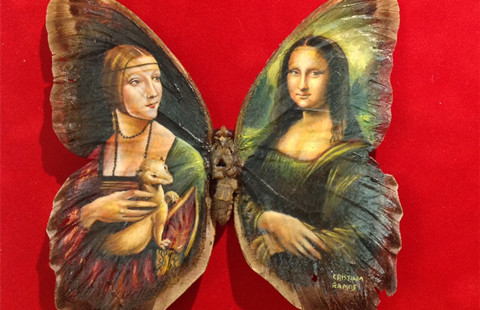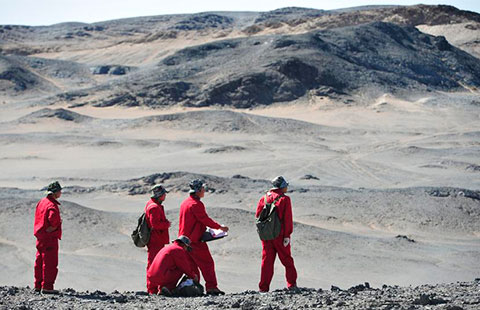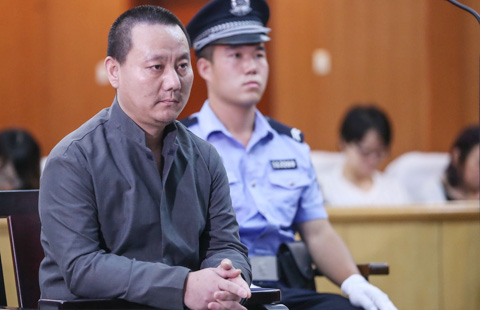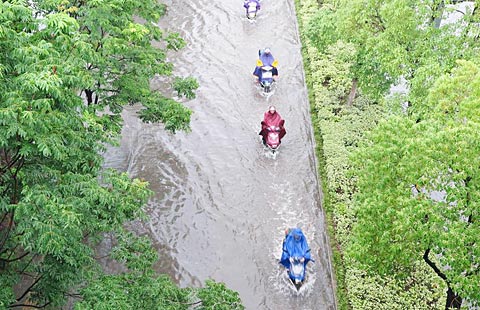Scientists discover Emperor Yao's capital
Updated: 2015-06-19 07:49
By Yang Wanli in Beijing and Sun Ruisheng in Taiyuan(China Daily)
|
||||||||
The first kingdom with the name China was located in Shanxi province at a site that traces its history back 4,200 years, archaeologists announced on Thursday.
Taosi, sitting at the foot of Chongshan Mountain in Linfen's Xiangfen county, has been shown to be the capital of the Yao period kingdom, said Wang Wei of the Institute of Archaeology under the Chinese Academy of Social Sciences.
"The site has the earliest kingdom relics we've found in the middle reaches of the Yellow River," Wang said. "Yao was one of the sage emperors living in the area. We believe Taosi is the empire's capital."
Excavation of the Taosi site began in 1978. Nearly 40 years of archaeological studies have shown that a highly civilized society existed at the time. Several large tombs, copperware and porcelain were found in the site, which covers an area of 2.8 million square meters.
"Palaces, royal tombs, ceremonial buildings, storage areas, as well as fortifications such as high walls and moats, could indicate a capital settlement," Wang said.
"Taosi is what some historical materials identify as Pingyang, the capital of the Yao regime," Wang said. "Our studies proved that the emperor Yao is not just a legend, but a true story."
Pingyang is the ancient name of the city of Linfen, where the temple and mausoleum of Yao are located. Many Confucian histories praised rulers Yao and Shun as models of morality and benevolence, but skeptics of the early 20th century challenged their existence.
"Years of archaeological studies gave the world a close look at the history and also made legends into reality," said Hu Suping, director of the Publicity Department of Shanxi province.
"The Chinese culture has a long history, and archaeology gives more people a chance to explore the past for a better look into the future," she said.
The earliest Chinese character also was found as part of the site's long study. "It hasn't been recognized precisely, but looks very familiar with ming (life), yang (sun) or yao," Wang said.
China originally could be termed as "the state in Central Land", Wang said.
"The trail of Chinese civilization appeared foggy in the late days of the third millennium BC," he said. "Given this, many Chinese scholars focused on the Taosi Site, trying to find some evidence to demonstrate the site is the earliest state in China."
Contact the writers through yangwanli@chinadaily.com.cn

 Painter uses butterfly wings as canvases
Painter uses butterfly wings as canvases
 Finding the minerals in the wild
Finding the minerals in the wild
 Ten photos you don't wanna miss
Ten photos you don't wanna miss
 Fish enjoy Dragon Boat Festival zongzi
Fish enjoy Dragon Boat Festival zongzi
 Ten photos you don't wanna miss – June 18
Ten photos you don't wanna miss – June 18
 Man with 15 girlfriends charged with fraud
Man with 15 girlfriends charged with fraud
 Heavy rain, flood hit many parts of China
Heavy rain, flood hit many parts of China
 Muslims around the world mark first eve of holy month
Muslims around the world mark first eve of holy month
Most Viewed
Editor's Picks

|

|

|

|

|

|
Today's Top News
Obama suggests more gun control after shooting
Talks seen as prelude to visit by President Xi to US in September
The most costly cities for expats
House passes fast-track trade bill
Gunman kills nine people in South Carolina church shooting
US House moves to revive Obama's Pacific trade pact
Hong Kong lawmakers reject election reform proposal
Lies and false hopes entrap Xinjiangers
US Weekly

|

|






